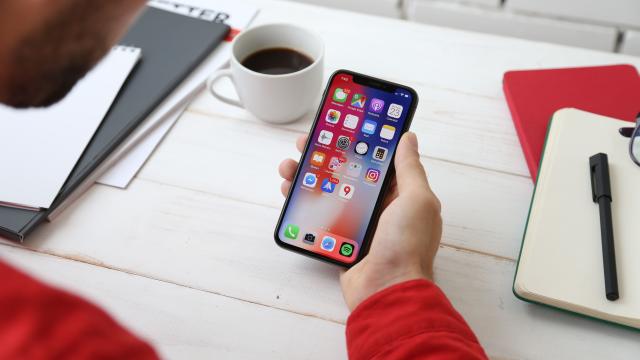There’s an app for everything, many promising to help people “fix” something in their lives. Productivity apps will turn you into a superhuman worker, for example, and financial apps will help you attain Rockefeller-levels of wealth.
Of course, no app can actually do that. For the Ringer, Molly McHugh writes a good run down of the foibles of finance apps specifically. The main takeaway being, you can’t rely on an app alone to change your behaviours. Especially in the financial space, where there is, literally, so much money on the line.
As I’ve written, I use a number of financial apps, as I’m sure many Two Cents readers do. I use Digit, for example. Paying to save money is inherently illogical. But Digit is also one of the few services I’ve missed when I quit using it. Currently, it’s assisting me in saving for a vacation, and I’ve stashed away enough that I feel it’s worth the price.
(I’ll also note that I had some iTunes gift cards, which have netted me a few “free” months.)
Of course, there are other savings apps that you can use for free. But Digit works best for me, so I pay for it. Erin Lowry, aka Broke Millennial, tells McHugh that you have to seriously consider the value you’re getting. “My rule is if you’re using them, try to put in at least $50 a month to really be getting some true value out of the fee that you’re going to be paying,” Lowry says. Your mileage will vary, but it’s not a bad threshold.
That said, there are some app categories that aren’t necessarily adding value. I’ve written about my qualms with microinvesting, specifically, before, the main one being: The customer these apps are advertised to (young, new to investing) would be much better off putting the “extra” money the apps invest into their super or other retirement account. You’re not really getting more for your buck by skipping out on the tax benefits retirement accounts offer, or potentially paying additional fees on the platforms — particularly if you don’t have a lot of money to invest in the first place, or you’re not that financially savvy.
And as McHugh’s article notes, payday and micro loans are particularly dangerous financial territory. “If you have something that you can just easily tap on your phone [for money] once a month, multiple times a month, and you’re starting to rely on that, it could definitely turn into a problem,” Lowry told McHugh. Switching from one financial product to another (say, credit card to short-term loan app) doesn’t magically give you more money to spend; it just transfers accountability.
Some of these loan apps, like LendUp, presented themselves as less risky alternatives to predatory payday loans, but much of the difference is just marketing, McHugh writes. LendUp, specifically, “was ordered by the Consumer Financial Protection Bureau [CFPB] to pay $3.6 [$5AUD] million in refunds and penalties to more than 50,000 customers” in 2016, after the agency ruled the company had misled clients. “The CFPB found that the company did not give consumers the opportunity to build credit and provide access to cheaper loans, as it claimed to consumers it would,” the CFPB wrote in a statement, and “hid the true cost of credit,” among other things.
When it comes to “fixing” your finances, or getting out of debt, there’s no single app for that.
Apps alone won’t change behaviour
It’s smart and necessary to be suspect of any financial product, especially when it promises to change your life. Like any other product, apps aren’t silver bullets.
McHugh puts it succinctly (emphasis mine). “The pitch behind many of these apps is that saving can be so easy that you don’t even notice the money is gone—but anything that purports to significantly improve someone’s financial life should be noticeable.”
If you want to change your financial behaviour, say save more or pay down your debt, you’re going to have to put in hard, diligent work. That’s the opposite of what most apps promise you. You have to determine your goals, make tough decisions and trade-offs when it comes to spending and saving, pay attention to fees and impulse purchases, and be discerning when it comes to the products you buy into.
[referenced url=”https://www.lifehacker.com.au/2018/12/multitask-when-it-comes-to-your-money/” thumb=”https://i.kinja-img.com/gawker-media/image/upload/t_ku-large/a3ejdv8gbs22jvqtwqyy.jpg” title=”Multitask When It Comes To Your Money” excerpt=”Multitasking is bad for productivity: If you’re in a meeting trying to send out emails while listening to the speaker, chances are one of those tasks is going to suffer. You need to give one task your full attention. But when it comes to your money, multitasking is a necessity.”]
That doesn’t render all apps useless — as I said, I like Digit, and I use Dollarbird to track expenses — but it does mean you need to work on your basic financial fitness and habits before you use them. For example, I don’t use Digit as a catch-all for my savings: I have a separate emergency fund and automate investments from every pay check. It’s not a crutch, then, but an addition to an already robust financial plan that I am fine-tuning over time.
That’s how you should think of all of these apps. They can’t turn you into a financially responsible person, and there’s no magic button on your smart phone you can press to master your money. They’re simply tools that can help you reach certain goals—if you know how to use them.

Comments